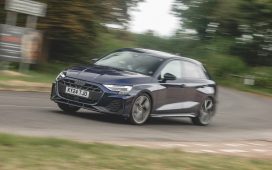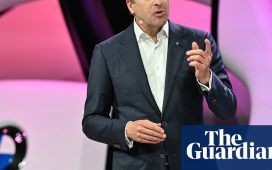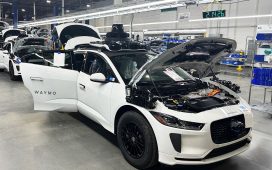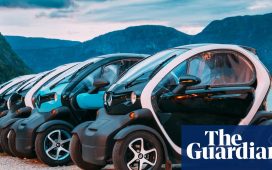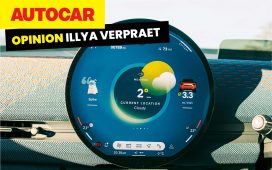Porsche sales slumped in the first three months of the year as an increase in deliveries to the US was overshadowed by falls in Europe and China, while Donald Trump’s trade war has triggered uncertainty in the global car industry.
The German car manufacturer reported a 37% rise in North American deliveries in the period from January to March, hitting 20,698, which Porsche said was partly because of low figures last year when car deliveries were delayed due to import restrictions on Chinese components.
However, the growth in American orders was not enough to offset steep falls in China, Germany and the rest of Europe – where deliveries fell by 42%, 34% and 10% respectively. Overall, deliveries of Porsche cars fell by 8% in the first quarter of the year to 71,470.
Slowing orders come as the US president enforces a 25% levy on car imports to the US, as part of a bigger package of trade tariffs that has caused a brutal sell-off in global stock markets.
The tariffs are a threat to sales in an automotive industry already grappling with a broader slowdown in consumer spending and intense electric vehicle competition for US and European firms from China.
Porsche did not say whether the US tariffs had had an impact on sales.
Part of the drop in its deliveries in Europe was also down to the discontinuation of some models that did not meet EU cybersecurity regulations, including the 718 and the Macan combustion-engine model.
The Macan model was, however, still Porsche’s bestseller in the period, with deliveries up 14% to 23,555. More than 60% of these cars were the all-electric type.
Shares in Porsche, which is listed in Frankfurt, have lost roughly a quarter of their value since the start of the year as investors have braced for a hit from Trump’s tariffs. The shares were flat on Tuesday.
Some of the world’s biggest carmakers have been forced to find ways to mitigate the cost of the new tariffs.
after newsletter promotion
Last week Jaguar Land Rover said it would “pause” shipments of its UK-made cars to the US for a month as it considers how to “address the new trading terms”.
JLR is one of Britain’s biggest carmakers, selling 400,000 Range Rover Sports, Defenders and other models each year. Exports to the US account for almost a quarter of these sales.
The Institute for Public Policy Research said last week that 25,000 jobs at UK-based auto-manufacturers were heavily dependent on exporting to the US, and could be under threat. One in eight cars built in the UK is sold to US buyers.

